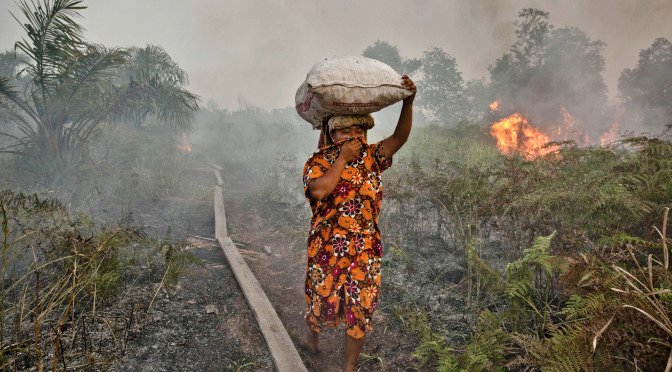What does Art-Tech-Eco-Culture mean? It represents a convergence of design, political will, mobilization and creativity that just may thwart the most dire climate change predictions.
I haven’t written enough about eco topics lately, but they have weighing on my mind, especially this past year. If you’re like me, it’s been difficult to stay focused in 2017. Each day when I wake up like Dorothy Parker asking “What fresh hell is this?” What keeps me moving forward? Action plans and recognizing where positive changes ARE happening.
If we focus on the negative, things can look hopeless…but something positive DID happened this year. The election of Trump re-invigorated and mobilized everyone concerned about the environment, social justice, economic justice, and health. Realizing also how connected these concepts are is no longer an abstract. It has became obvious in memes spread by middle school kids. When 11 year olds are ‘woke’ to these ideas we’re getting somewhere. The shift IS happening.
In the past year with Trump administration attacks on climate science, environmental regulations, groups and concerned citizens have been organizing like never before. Through social media, blogs, and small businesses, interests in ways to save the planet have sky-rocketed. Trends that have been simmering since 2006 have exploded.
It couldn’t come any sooner – In just the past month we’ve had at least 3 devastating hurricanes, unprecedented flooding and out of control wildfires in the west. The warnings Al Gore gave years ago as a nightmarish but distant future, are happening right now.
So, what are these trends I’ve been seeing – in stores, documentaries, book-sales, product sales, on social media, in local legislation, in laws around the world? By themselves they may seem small or inconsequential – but they are driving real changes in industries and policies around the world. Companies are shifting investments and product strategies because of these trends. Citizens are speaking up and demanding new laws.

- Plastic bag bans –Mother Nature Network has an interactive map of locales around the world that have banned plastic bags.

- Rise of Tiny Homes
- Interest in Minimalism
- Growth in books and blogs on de-cluttering, simplifying, downsizing.
- Swap party movement – articles showed up in blogs, on Pinterest – now even Oprah, Women’s Day, Weight Watchers and Good Housekeeping are telling Americans how to host a clothing swap party.
- The average American throws away 70 lbs. of clothing and accessories each year. Instead – go to swap parties with your bags of clothing, books, accessories, home items. Visit with friends over drinks, snacks. Go home with new treasures. Remainders go to local charities.
- Sustainable Farming
- The Netherlands ,the second largest exporter of food in the world, employs techniques using 90% less water:
- Aquaponics – chemical free, it also uses a fraction of the water used in conventional agriculture.
- Permaculture – is about working with nature, not against it, to produce ‘permanent agriculture.’
- Efforts to Reduce Food Waste
- DIY movement
- Thanks to YouTube and other forms of social media, it’s become possible to move being consumerism to create for ourselves.
- Evolving into ‘Do it Together’ Bartering and communal efforts connect people and help share skills.
- Growth of Veganism
- This is huge – with animal agriculture accounting for more global warming gasses than the transportation sector. Documentaries have been uncovering these links and how leading environmental groups have been bullied by these industries to keep this quiet.
- The documentary What the Health which aired on Netflix this year resulted in a spike of people waking up to the enormous impact that animal protein has on causing cancers, diabetes and heart disease. Moving to a plant-based diet will save countries billions of dollars in health care costs.
- Decades of processed foods affect on Western gut bacteria has lead to an epidemic of immune disorders. This has spurred a movement toward reintroducing probiotics into our diets. (And I’m not talking about sugary, processed yogurt.)
- Rise of interest in Yoga
- This has been politically contentious in some Muslim and Christian communities who have decried this as somehow converting people to Hinduism. In truth, Yoga is enormously prevalent across communities in the world, of many religions. Sikh practicioners, for example, are not Hindu. This fear is as weak an argument as thinking that Westerners using ‘Zen’ practices to de-clutter their homes will turn them into Buddhists. Or that the Japanese celebrating Christmas will turn into Christians. It hasn’t happened.
- In truth, the practice of yoga (and meditation!) across the world, among prison populations, urban schools, veterans suffering from PTSD, or refugees suffering from the traumas of war – has lead to tremendous healing.



